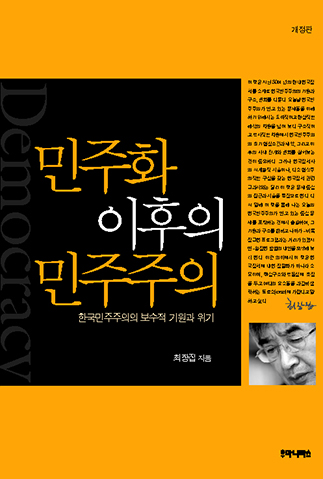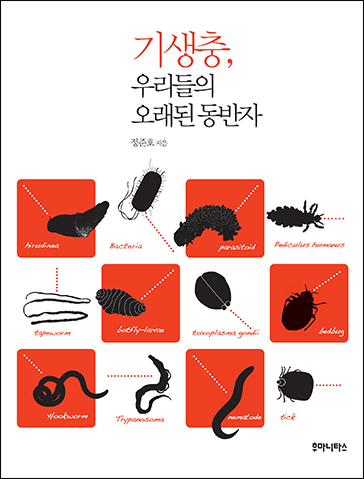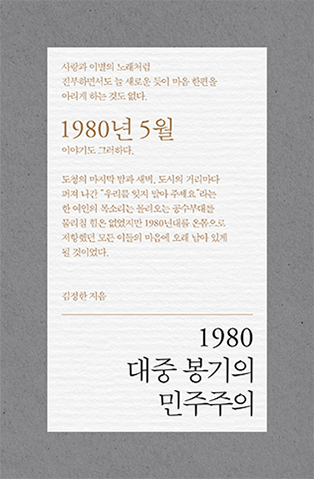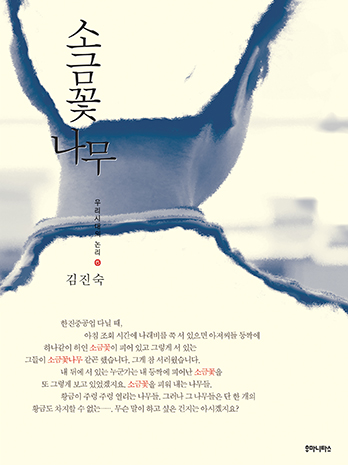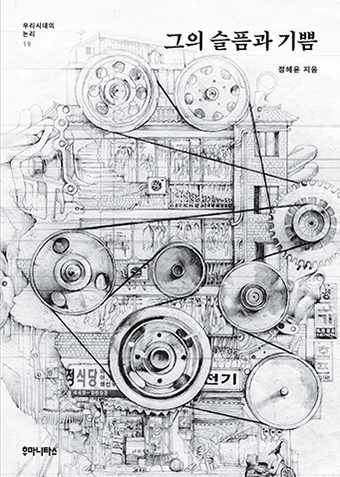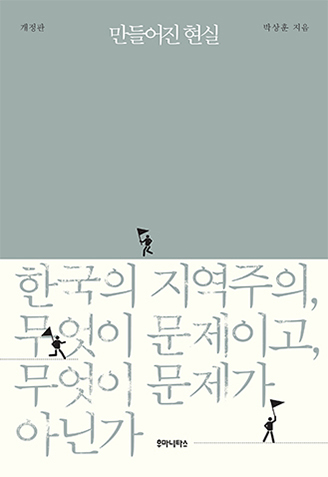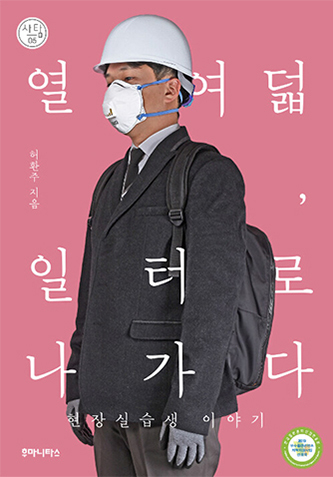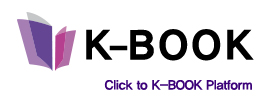|
Korean Publishers
Humanitas Going Forward with Belief in Change
2022.12.05
All individuals live in a society - the link between an individual and a community cannot be broken. Issues and relations formed among people and society cause problems and conflicts. Some cases are minor discords among individuals but sometimes become a huge problem for the community. Humanitas is a publisher that pays attention and listens to small and big societal issues that people face. Humanitas takes steps along with individuals and members of society and turns small movements into changes. Today, we met Humanitas, which has continuously explored diverse situations in Korea from a social science perspective.
Humanitas’ Logo

It’s an honor to have you here on K-Book Trends. Please introduce Humanitas, its mission, and the meaning of the company’s name to our overseas readers.
Humanitas is a contrast to theology, the study of god. The word derives from a Latin word that became the origin of humanities, the study of humans. Seniors and juniors, who majored in politics at a graduate school, gathered and started the company in 2002. At that time, we pondered upon what name we should choose for our publishing company for a long time. Politics, in a broader sense, is a social science and humanities in a more general sense. All three areas are about issues and relations among people. So, we all decided on the company’s alternative name, Humanitas. Humanitas was not a commonly used term. Very few understood the word at once. But now, the company name Humanitas sounds familiar to many.

The slogan, “We publish books on critical social issues,” written in your introduction, is quite impressive. What kind of books of yours are on critical social issues?
A social issue reflects how much one cares about a different individual and society. Unless isolated in the middle of space, one naturally lives in a small or big community. Within the community, one is born, hurt, consoled, in love, broken up, and dead in the end. Books on critical social issues look at problems in society and help readers view matters in a social context.
Books walk alongside society and individuals as partners.

Your message must be clear, as your motto is releasing books on critical social issues. How do you want society to change through Humanitas’ books?
As human history and individuals’ lives show, change is like Sisyphus’ Roll of the Stone. They both take a step forward and move two steps back. We are living somewhere in a long and slow process. Having faith in change itself can be our target. We believe that books do not change the world by themselves. Instead, they walk along with society and individuals that push the stone forward. Humanitas hopes to make the community a safer, more peaceful, and freer place to live for more individuals.
Democracy, Democratization, Parasite, Our Old Companion, and 1980 Democracy in the Popular Uprising

The current society’s border is becoming vague and wider nationally and globally. Humanitas publish many books that readers overseas can agree with. Please introduce Humanitas’ books that you would like to introduce to readers in other countries.
I think Korea’s experience with democratization can be enjoyable to readers overseas. Professor Choi Jang-Jip’s Democracy, Democratization tries to make a systematic analysis of Korean society after democratization, shows the historical and structural origin of Korean democracy, and views from a microscopic point of view.

It must be challenging to run a publishing company for a long time by releasing books in only one area. So what’s the secret behind Humanitas’s success in solidifying its position in the social science area?
Social science is the area company members are interested in and know the best. In addition, most of the editors have worked in Humanitas for a long time, getting to have expertise of their own in their interest area. As a result, editors also became an intellectual of that particular segment.
A Salt-flowered Tree

You might have met many forms of life as you release books reflecting society. Of all the books, which one is the most memorable? Please share a story on it.
Meeting with the writer or translator opens the door to a new horizon of recognition. It is more so when their lives symbolize critical issues in Korean society. For example, A Salt-flowered Tree’s author Kim Jin-Sook started working as a welder at the age of 21 in 1981 at Hanjin Shipbuilding & Construction, was fired in 1986 for joining a labor movement while she was in her 20s and was reinstated in 2022 at age 60 after 37 years. As a labor activist, her writings and speeches moved many people’s hearts, and some even say that one cannot help but cry when listening to her tribute speech.

You’ve been talking about many social issues in your books. For example, much lamentable news has recently been about labor workers in Korea. What’s one specific social issue Humanitas is focusing on? Also, what kind of social issues will your company cover in 2023?
Labor issues are critical in our lives regardless of political views or positions. They are also something Humanitas continues to pay attention to. We focus on industrial accidents, unstable labor, occupational health, and recently published books on shipyard industrial accidents, teen labor, and platform labor (especially delivery service).
Humanitas hopes to make the community a safer, more peaceful, and freer place to live for more individuals.

Please introduce popular books that best show the color of Humanitas.
Jeong Hae-Yun’s His Sorrow and Joy is a reportage that recorded 5-year-long stories of fired workers who were part of SsangYong Motor’s lay-off and strike, victims to one of Korea’s most tragic events caused by cutbacks. The book is a speculative labor reportage written sincerely “after listening for a long time until the sorrow and despair are turned to lights,” and shows what work means to people and the process of one living a life for someone else.
His Sorrow and Joy, Manufactured Reality, and Eighteen Years Old, Going to Work: The Story of a Field Trainee

We cheer for Humanitas, which spreads diverse voices of people to the world. Lastly, please tell us about Humanitas’ plans or goals.
As long as humans form society and community exists, there are perennial topics, such as labor, politics and democracy, poverty, and inequality. Though details, forms, and subjects may evolve with societal changes, Humanitas will continue to follow and pay attention to important topics.
#Humanitas#Social Science#Labor Issues#A Salt-flowered Tree |
Pre Megazine
-

Jakkajungsin Publishing Co.
VOL.69
2024.04 -

Writer Yun Jung-Eun
VOL.69
2024.04 -

Jumping Books Publishing House
VOL.68
2024.03 -

Writer Kim Hwa-Jin
VOL.68
2024.03 -

Publisher Hyohyung
VOL.67
2024.02 -

Writer Minha
VOL.67
2024.02 -

Almond Publishing
VOL.66
2024.01 -

Writer Kwon Jung-Min
VOL.66
2024.01 -

Hakgojae Publishers
VOL.65
2023.12 -

Writer Kim Hye-Jung
VOL.65
2023.12 -

Eidos Publishing House
VOL.64
2023.11 -

Writer Hwang In-Chan
VOL.64
2023.11 -

Munhakdongne
VOL.63
2023.10 -

Writer Chang Kang-myoung
VOL.63
2023.10 -

Happywell Publishing
VOL.62
2023.09 -

Writer Baik Soulinne
VOL.62
2023.09 -

Dasan Contents Group (Dasan Books)
VOL.61
2023.08 -

Writer Lim Kyoung-Sun
VOL.61
2023.08 -

SpringSunshine Publishing Co.
VOL.60
2023.07 -

Writer Lee Kyung-Hye
VOL.60
2023.07 -

Human Cube
VOL.59
2023.06 -

Doctor Jeong Jae-Seung
VOL.59
2023.06 -

Anonbooks
VOL.58
2023.05 -

Writer Son Bo-Mi
VOL.58
2023.05 -

Namhaebomnal
VOL.57
2023.04 -

Writer Kim Bo-Young
VOL.57
2023.04 -

Hugo Publishing
VOL.56
2023.03 -

Writer Cho Kwang-Hee
VOL.56
2023.03 -

Balgeunmirae Publishing Co.
VOL.55
2023.02 -

Writer Lee Byung-Ryul
VOL.55
2023.02 -

Wisdom House, Inc
VOL.54
2023.01 -

Writer Jeong Jia
VOL.54
2023.01 -

Humanitas
VOL.53
2022.12 -

Writer Kim Yeon-Su
VOL.53
2022.12 -

Songsongbooks
VOL.52
2022.11 -

Writer Eun Hee-Kyung
VOL.52
2022.11 -

Bombom Publishing Co.
VOL.51
2022.10 -

Writer Jiwon Yu
VOL.51
2022.10 -

Hangilsa Publishing Co., Ltd.
VOL.50
2022.09 -

Writer Kim Won-Young
VOL.50
2022.09 -

Moksu Publishing Company
VOL.49
2022.08 -

Writer Yoo Sun-Kyong
VOL.49
2022.08 -

Next Wave
VOL.48
2022.07 -

Writer Park Sang-Young
VOL.48
2022.07 -

A Thousand Hopes
VOL.47
2022.06 -

Writer Bora Chung
VOL.47
2022.06 -

Woongjin ThinkBig
VOL.46
2022.05 -

Dr. Oh Eun-Young
VOL.46
2022.05 -

JECHEOLSO Publishing House
VOL.45
2022.04 -

Writer Jang Ryu-Jin
VOL.45
2022.04 -

Changbi Publishers
VOL.44
2022.03 -

Writer Kim Ho-Yeon
VOL.44
2022.03 -

Mati Books
VOL.43
2022.02 -

Writer Lee Kkoch-Nim
VOL.43
2022.02 -

Picturebook Gongjackso
VOL.42
2022.01 -

Writer Kim Sang-Wook
VOL.42
2022.01 -

Writer So-yeon Park
VOL.42
2022.01 -

Writer Yoo Eun sil
VOL.42
2022.01 -

Kungree Press
VOL.41
2021.12 -

Writer Kim Lily
VOL.41
2021.12 -

Writer Park Yeon-jun
VOL.41
2021.12 -

Writer Yi Hyeon
VOL.41
2021.12 -

A deeper world told through picture books 'Iyagikot Publishing (Story Flower)'
VOL.12
2019.06 -

Author Jeon Min-hee
VOL.12
2019.06 -

Illustrator Kim Hwan-Young
VOL.13
2019.07 -

Travelers sailing through the sea of knowledge - 'Across Publishing Group Inc.'
VOL.13
2019.07 -

Genre Novel Publisher 'Arzak Livres'
VOL.14
2019.08 -

Author Lee Yong-han
VOL.14
2019.08 -

Wookwan Sunim
VOL.15
2019.09 -

East-Asia Publishing
VOL.15
2019.09 -

Author Jo Jung-rae
VOL.16
2019.10 -

EunHaeng NaMu Publishing
VOL.16
2019.10 -

Writer Heo Kyo bum
VOL.40
2021.11 -

Writer Kim So-Young
VOL.40
2021.11 -

Author-illustrator Kim Sang Keun
VOL.40
2021.11 -

ACHIMDAL BOOKS
VOL.40
2021.11 -

Author Kang Gyeong-su
VOL.17
2019.11 -

Moonji Publishing Belongs to the Literary Community
VOL.17
2019.11 -

Author Kim Yun-jeong
VOL.18
2019.12 -

I-Seum
VOL.18
2019.12 -

Kim Cho-Yeop
VOL.19
2020.02 -

Creating a window into the future with books
VOL.19
2020.02 -

Author Serang Chung
VOL.20
2020.03 -

Hey Uhm
VOL.20
2020.03 -

Writer Lim Hong-Tek
VOL.21
2020.04 -

BIR
VOL.21
2020.04 -

Writer Song Mikyoung
VOL.39
2021.10 -

Author-illustrator Kim Dong Su
VOL.39
2021.10 -

Writer Lee Seula
VOL.39
2021.10 -

Tabi Books
VOL.39
2021.10 -

Writer Kim Soo-hyun
VOL.38
2021.09 -

Author-illustrator Lee Myoung Ae
VOL.38
2021.09 -

Writer Hwang Sunmi
VOL.38
2021.09 -

Kidari Publishing Co.
VOL.38
2021.09 -

Writer Sohn Won-Pyung
VOL.22
2020.05 -

Woods of Mind's Books
VOL.22
2020.05 -

Writer Heungeul
VOL.23
2020.06 -

Gloyeon
VOL.23
2020.06 -

Maumsanchaek
VOL.24
2020.07 -

Winners of the 2021 Bologna Ragazzi Award
VOL.37
2021.08 -

Picture book artist Lee Suzy
VOL.37
2021.08 -

Author-illustrator Yi Gee Eun
VOL.37
2021.08 -

Hubble
VOL.37
2021.08 -

Writer Baek Se-Hee
VOL.25
2020.08 -

Bearbooks Inc.
VOL.25
2020.08 -

Author Baek Hee-Na
VOL.26
2020.09 -

Yuksabipyoungsa
VOL.26
2020.09 -

Writer Kang Hwa-Gil
VOL.27
2020.10 -

Kinderland (Bandal)
VOL.27
2020.10 -

Writer Ha wann
VOL.36
2021.07 -

Author-illustrator Myung Soojung
VOL.36
2021.07 -

Writer Jung Yeo-Wool
VOL.36
2021.07 -

Publisher EcoLivres
VOL.36
2021.07 -

Writer Lee Geumi
VOL.28
2020.11 -

Sakyejul
VOL.28
2020.11 -

Writer Kim Keum-Hee
VOL.29
2020.12 -

Geulhangari
VOL.29
2020.12 -

Writer Cheon Seon-Ran
VOL.30
2021.01 -

Hyang Publishing House
VOL.30
2021.01 -

Writer Lee Hee-Young
VOL.31
2021.02 -

Sanzini
VOL.31
2021.02 -

Publisher Prunsoop
VOL.32
2021.03 -

Writer Sim Yun-Kyung
VOL.32
2021.03 -

Hanbit Media
VOL.35
2021.06 -

Hyeonamsa
VOL.33
2021.04 -

Author-illustrator Noh Inkyung
VOL.33
2021.04 -

Writer Cho Won-Jae
VOL.35
2021.06 -

Writer Kim Jung-Mi
VOL.34
2021.05 -

Safehouse Inc.
VOL.34
2021.05





